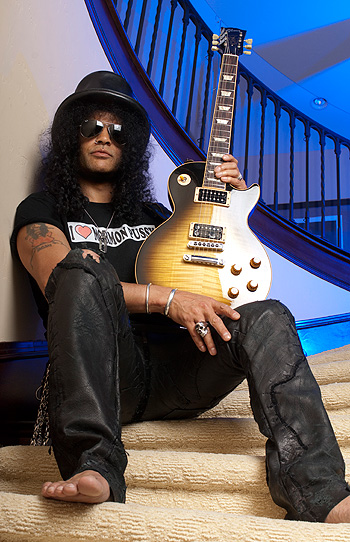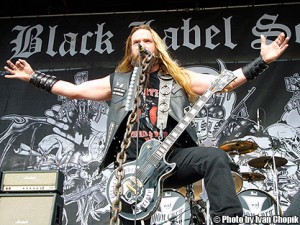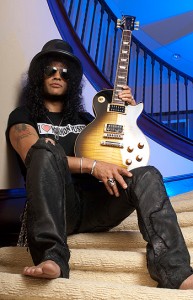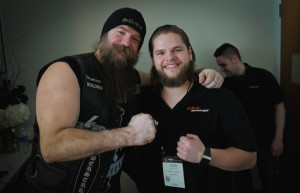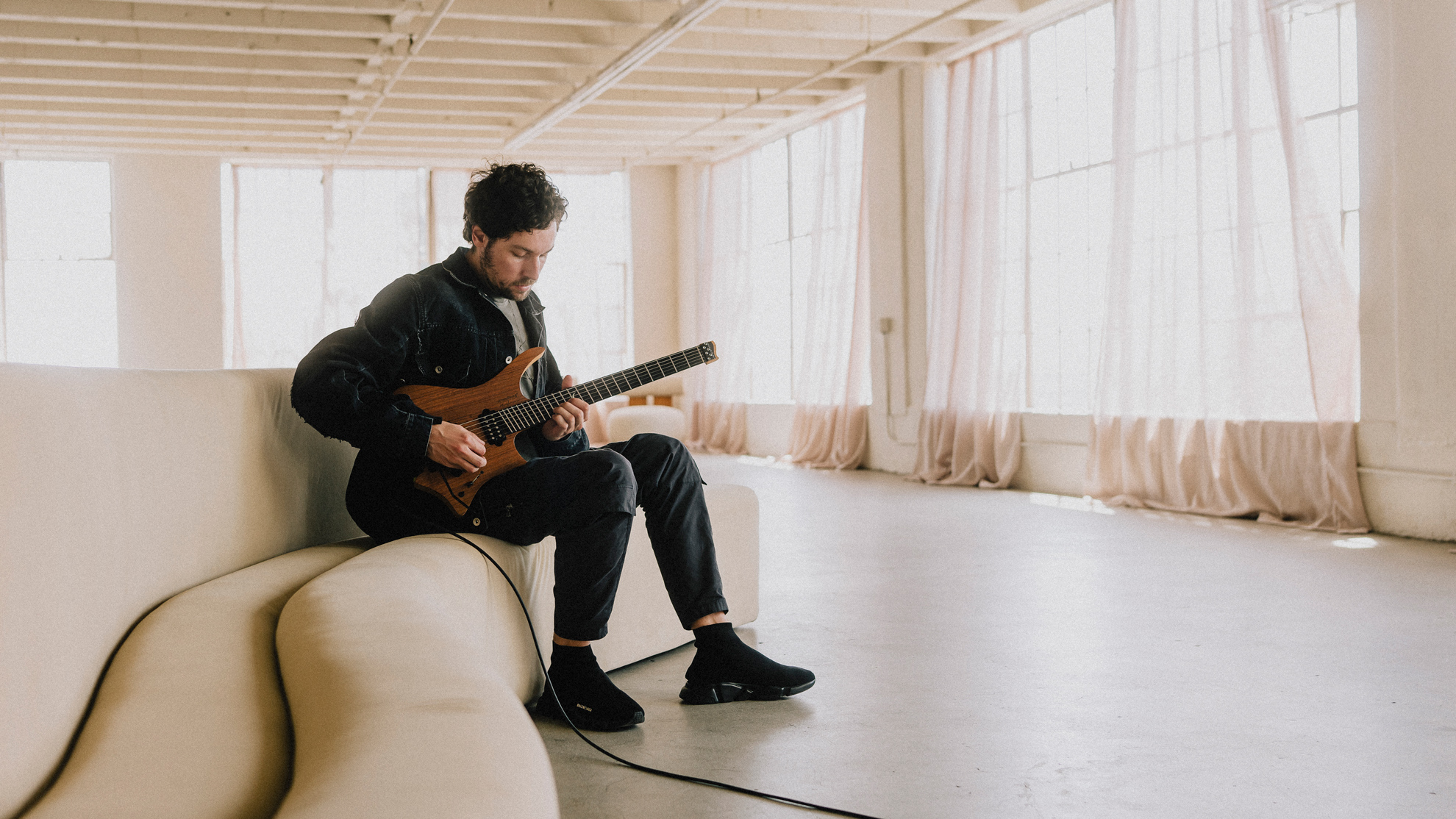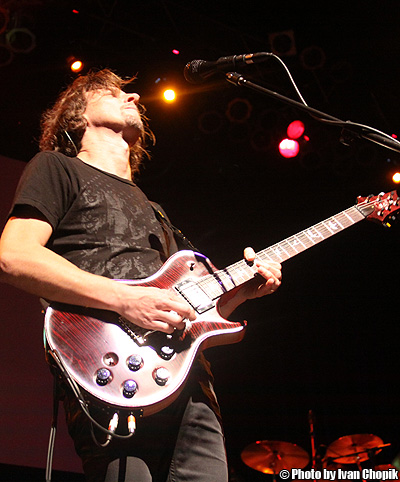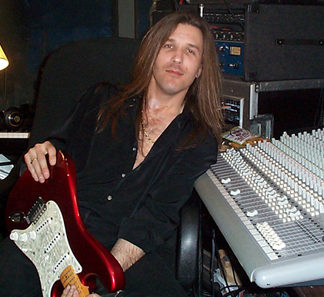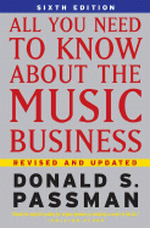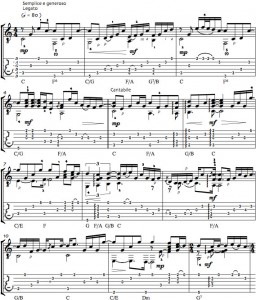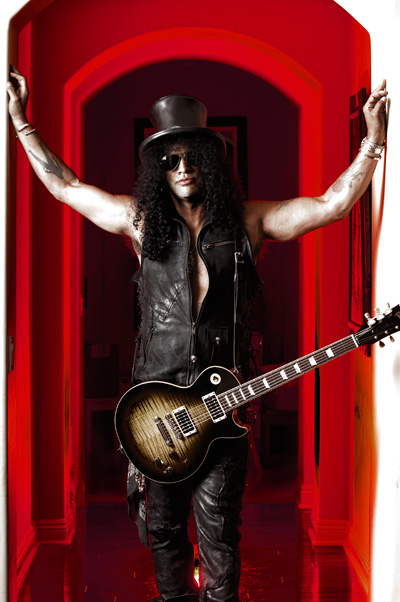 Slash is more than an extraordinary musician – he’s a cultural icon. The top hat-wielding and Les Paul-slinging axeman’s instantly identifiable sound has helped to define an entire genre and inspired legions of guitarists across the globe.
Slash is more than an extraordinary musician – he’s a cultural icon. The top hat-wielding and Les Paul-slinging axeman’s instantly identifiable sound has helped to define an entire genre and inspired legions of guitarists across the globe.
2010 marked a new chapter for Slash with the release of his self-titled solo debut – a 14-track rock opus featuring a star-studded cast of Slash’s musician friends, and, of course, the gritty riffage and soaring leads that are key to his sound. I had the opportunity to speak with Slash following the recent U.S. leg of his world tour:
IC: I’m glad you’re doing well, because Fergie does kill you at the end of your new video!
S: Yeah, right? [laughs]
IC: I think the title ‘Beautiful Dangerous’ really sums up that video, and I know that you’ve mentioned that Fergie has a dark side before. Surely this must be it.
S: I think I’m a great outlet for Fergie to be able exorcise some shit that she doesn’t get away with in The Black Eyed Peas. I wrote another song with her – when we did ‘Beautiful Dangerous’ we also did this other song, which brought out a side of Fergie that I never had before. It was just really hardcore. I was like: ‘Wow!’ It will be interesting. When she does her solo rock record at some point, it’ll be very telling to people of the different sides of Fergie, besides the celebrity side that you see in The Black Eyed Peas.
IC: What was the whole experience like on your end for shooting that video?
S: We shot it all one day, basically – except for the live footage that they tacked on there. It was actually one of the most painless videos I’ve ever shot, because we just went in and did the takes and everything was moving very fast. The director was very pro, and there wasn’t too much sitting around and waiting. So all things considered, that was the main thing. Fergie was great – she knew exactly what she was doing. The overall concept of the video was her idea anyway, so she knew exactly the character that she was playing. Basically all I had to do was show up – so all things considered, it was fun.
IC: You recently announced that you’ve been jamming again with Velvet Revolver and looking for a new vocalist. What’s the status on that?
S: We did some jamming, and we’ve got some more singers coming up in the next couple of weeks. So it’s a work-in-progress – let’s put it that way.
IC: With the Slash release, going in to work with all of these vocalists must have been exciting, but also difficult to predict as far as what the outcome might have been. With that in mind, what was your favorite moment on the album? Is there anything that you wish had come out differently than it did?
S: I don’t have anything that I wish had come out differently. The whole production of the record was, for the most part, pretty much seat-of-my-pants, just sort of throwing it all together and hoping for the best. Highlights were all throughout the record. Getting anything done under the circumstances, when the artists that are on the record would actually show up at the studio and we would actually produce something, for me, was a highlight unto itself – because for me, this was just one of those kinds of records where you really don’t have 100% control over the entire thing. Usually in a band, the band shows up, there’s a record company and a producer, and you go in and you make a record you’ve been planning to make for months and months and months.
This was the kind of thing where I wrote a bunch of songs, I demoed them up, I called a bunch of singers, I asked them if they were interested, and then got in the studio with Eric Valentine, who was the producer. It was his studio, and we had to wait and see who showed up. That in itself, just getting everybody on it, was a highlight. Working with Ozzy was great, working with some of my old heroes like Lemmy, working with Ian Astbury was great, Fergie was great – everybody that was involved was a highlight.
It was very cool having Iggy Pop show up, he was the first vocalist to actually set the whole thing in motion – he was the first vocal that we recorded, and that sort of set the pace for the rest of the record. You can imagine for me, as a rock fan guitar player, it was a lot of fun, the whole thing.
IC: I can imagine, definitely. Do you anticipate releasing another album like that down the road, or is too early to tell?
S: It’s something I expect to do again, sitting here talking to you right now, but you never know what will happen down the road. It’s definitely not on my plate at the moment.
IC: You’ve been an avid supporter of the Les Paul/Marshall combo for so many years, but that signature setup has also seen some tweaks and changes over time. Is there any insight that you can share with us for getting the most out of your tone that you’ve picked up recently?
S: The longer I’ve been doing this, the more I’ve come to realize that less is more, and the more you can simplify it, the better. In doing this last record, it was basically just one Les Paul and one amp for the whole production. I’ve been out on the road at this point, and I’ve got two heads on the road and fewer guitars than normal, and that just works better. It even comes down to the less knobs that are on the amp, the better [laughs]. Working with the simplest tools possible is really when you get the best results.
IC: Say you show up at a gig: you’ve got your Les Paul with you, and there’s a JCM800 onstage. What’s your typical approach as far as settings go?
S: I think the easiest way for me to recognize what an amp sounds like is to turn everything on seven.
IC: Coming back from this extensive tour, has it been difficult for you to maintain your healthier lifestyle that you’ve adopted in recent years?
S: This has been a whirlwind tour that we just did – from a European tour, to Asia, to Australia to the U.S. all inside of basically eight months. With the exception of days that we were flying, we were playing like six nights a week. You just have to pace yourself. The only thing really that I focus on is the gig. I don’t do anything else, except for handle the press and stuff.
There was a lot of work going on in this tour. Because it’s my solo record, there was nobody else to share any of the duties [laughs]. It was all up to me to get everything done in addition to the actual show. It was a lot of work. Basically, all you’ve got to do is pace yourself, and try if you can to get some rest here and there – and try not to eat a lot of crap [laughs].
IC: With that in mind, what would you say is your biggest vice these days?
S: My biggest vice now? My biggest vice at this point is probably staying up late and hanging out, which I still have a hard time not doing, and Nicorette, at this point.
IC: One of the things I really admire about your playing is that as excited as you may feel and get during various parts of the show, you still manage to have a really relaxed rhythmic feel. Is that something you’re conscious of and have worked on, or does it just come to you?
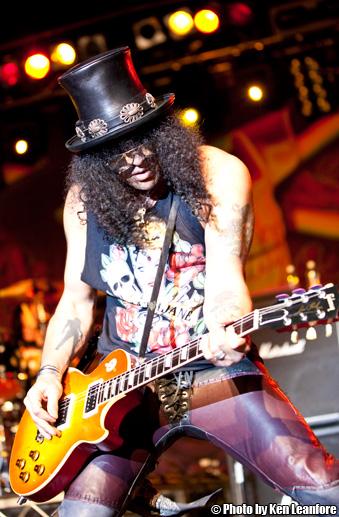
S: No, I always thought that I was on top of the beat [laughs]. I do rush things a little bit, but I don’t really have a concentrated approach on how I do things once I’m out there doing it, you know? How I play is spontaneous, feel-wise – it is what it is. I don’t really think about it too much. That said, I’m very focused when it comes to the actual execution of whatever it is that I’m playing, and being in tune with the band and all of that kind of stuff. It’s all very, very important. It’s sort of just part of my gig: we go in, make sure everything sounds cool, and then sort of lock in – and then I don’t think about that aspect of it very much more after that.
IC: When you’re not on tour, is there some aspect of your playing that you’re still trying to change or improve on?
S: I have my guitar right here, and I sit around and just see what comes up or see if there are any ideas – sort of just mess around. I don’t have a regimen. I don’t have a focused line of thinking as far as how I approach the guitar, I just sort of do stuff with it and hope for the best and hope that something inspiring comes up or I might stumble on something. You know what I mean? The best thing, I think, is to just to keep a guitar around as much as possible.
IC: If you could travel back in time and give 1987 Slash some advice, what do you think that would be?
S: If I could travel back, knowing what I know now, back to 1987 – that would be a drag. That would be a total bummer. Because then it would just kill the whole magic of what 1987 and the following years would have been.
IC: Are there any new artists out there that you’ve been getting into recently?
S: I did really enjoy jamming with Airborne. When we were doing the European Festival Tour, we were doing all of these shows with that band. That was pretty cool. Those guys are the closest thing to a sort of AC/DC-type hard rock band, full of energy kind of thing that I’ve seen in a long time. I like Jack White’s new band Dead Weather, Bullet For My Valentine is cool, and the new Avenged Sevenfold record’s good. There’s a band from Australia which is just now breaking over here called Karnivool, which is really, really cool.
There’s stuff here and there – there hasn’t been one thing where I’ve just been like: ‘Wow!’ Like when I first heard Alice In Chains, say. There hasn’t been a movement like that, but there are cool things that are starting to happen that are rock & roll based. Hopefully in the next of couple years as things develop, there will be more of that happening.
IC: Is there anyone that you think might be the next guitar hero in the making?
S: I don’t know. That’s one thing I couldn’t tell you. I just don’t see a lot of focus on that in this industry at the moment [laughs]. But there’s a hell of a lot of guitar players out there, and there’s a lot of kids who are picking up the guitar and there’s a lot of excitement as far as guitar playing is concerned, but it just seems to be largely ignored by the industry and producers as a whole. Guitar isn’t necessarily that important in commercial music right now, is the way they look at it.
IC: You’ve had the opportunity to work with so many awesome different artists over the years, and especially recently. Who’s someone that you haven’t had the chance to work with yet that you’d really like to get together with?
S: The collaborations that I’ve done thus far are all because of things that circumstantially ended up happening, but they’re with people that I really admire musically – and that’s hopefully sort of mutual, and that’s where it comes from. But there’s not a lot of forethought, like: ‘I’d like to play with so and so,’ and then I make a phone call to my office and say: ‘Get in touch with this guy and see if you can get us hooked up together.’
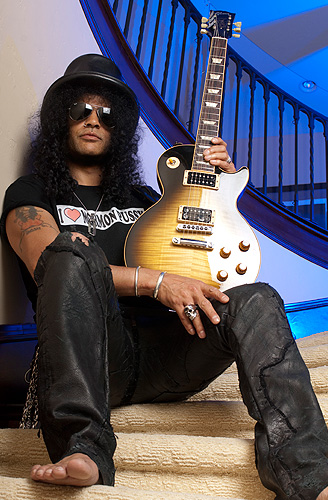 I don’t have pre-planned ideas as to what I’m going to be doing in collaborations and stuff. Right now, I’ve gotta play with The Roots tomorrow night on Jimmy Fallon, and I think The Roots are fucking awesome. I don’t have any plans or anybody that I want to work with or that I’m hoping to work with, but there are people I dig [laughs]. It would be very presumptuous of me to assume that because I like somebody that they’d want to play with me, or that I can make that happen.
I don’t have pre-planned ideas as to what I’m going to be doing in collaborations and stuff. Right now, I’ve gotta play with The Roots tomorrow night on Jimmy Fallon, and I think The Roots are fucking awesome. I don’t have any plans or anybody that I want to work with or that I’m hoping to work with, but there are people I dig [laughs]. It would be very presumptuous of me to assume that because I like somebody that they’d want to play with me, or that I can make that happen.
IC: What are your thoughts going into the January tour with Ozzy?
S: I’m just looking forward to it. I’m actually really, really excited about it. That’s where I’m at with it, and I’m just waiting to get going on it – because it doesn’t start until January and to me, that’s a long way off [laughs].
IC: What are some of your hobbies or things that you like to do in your off time?
S: I’m not really into hobbies [laughs]. I really spend most of my time doing music-related stuff. I like cars, I like to play pinball, I like doing a lot of stuff, but it’s not really a big deal.
IC: Having weathered the ups and downs of the industry for so many years now, what’s some advice that you can give to young artists trying to get out there and make their mark in the industry?
S: I don’t know. Right now, I’m busy sort of hanging on as far as sticking to my guns in what it is that I do, and really not fitting in with everything else that’s going on in music at this point. It’s hard for me to know what to tell somebody trying to get it together at this point in time, because it just seems so corporate now. A lot of records are being made where people don’t even know how to play. There’s a lot of technology involved, and nowadays it seems like everybody’s trying to conform to the music industry standard.
It used to be that there was a record business and then there were the musicians, and the twain didn’t meet on the same ground. Now it seems like everybody is all on the same page, and it’s really focused on money. It’s hard for me to say what somebody should aspire to do in the music business at this point [laughs]. I would assume that the most important thing is to learn your instrument, and to know what it is that you want to produce musically, and then to go out there and go for it. It takes a lot of work, and a lot of commitment and dedication, and you have to be prepared to deal with all of that and want to do it.



